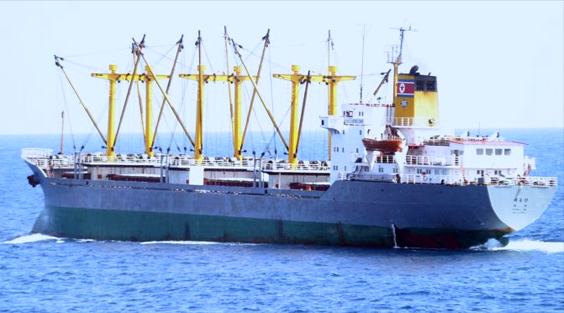July 20, 2020
Cameron Trainer and Paulina Izewicz
The following was originally published by the Center for International Maritime Security (CIMSEC).
The issue of fraudulent flagging was brought to the attention of the international community in 2015, when the IMO became aware of a fraudulent registry purporting to operate on behalf of the Federated States of Micronesia. Micronesia does not operate an international shipping registry. It is not even an IMO Member State. Two years later, the Democratic Republic of the Congo (DRC) formally brought the issue to the attention of the IMO Legal Committee after discovering that 77 out of the 84 vessels flying its flag have been doing so without authorization. Other countries have also fallen victim to fraudulent registration, including Fiji, Samoa, Nauru, Vanuatu and the Maldives. Although in some cases, like Nauru, the fraud was caught early enough that no fraudulent documents were ever issued, as of last year over 300 vessels are believed to have been registered fraudulently.

North Korean cargo vessel transits from Somalia after the ship was hijacked by pirates, Source: U.S. Navy
These fraudulent registrations are exploited by those engaged in illicit activity. In the case of the DRC, the country only became aware of the issue when contacted by INTERPOL with a request to prosecute two vessels engaged in illicit activity that claimed the DRC flag. Of the 98 vessels investigated by Fiji since 2017 for fraudulently claiming its flag at least 20 percent were subsequently linked to North Korea and likely engaged in sanctions evasion. Fraudulent registries not only deprive legitimate registries of income but can also cause significant reputational damage when vessels fraudulently flying a flag are involved in illicit activities. In just one example, the Maldives found itself having to officially deny a statement by the Japanese Foreign Ministry which identified a supposedly Maldives-flagged vessel as engaging in a prohibited ship-to-ship transfer with a North Korean tanker.
In addition to enabling illicit activity and causing financial or reputational damage to legitimate maritime actors, fraudulent and false flagging can also adversely impact a range of other areas—maritime safety and security, environmental protection, and maritime emergencies among them. More broadly, as the resolution on the subject adopted by the IMO Assembly in January 2020 notes, unauthorized flag use “endanger[s] the integrity of maritime transport, and undermine[s] the legal foundation of the Organization’s treaty and regulatory regime.”
Despite that, the IMO response to the issue has been slow to come. While the organization has been aware of the problem at least since 2015, it was only in 2019 that it adopted any concrete measures to address it. One of these measures involved establishing a whitelist of authorized national registries and a procedure of verifying the information provided. This is particularly important given that the IMO had in the past erroneously recognized the fraudulent Micronesia International Ship Registry as a legitimate authorized body acting on behalf of the Micronesian government.
Continue reading at CIMSEC.
